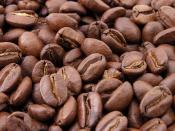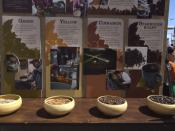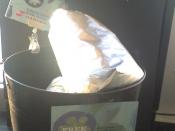Ques 1. Starbuck's value chain is farmers, roasting, distribution, and retail.
Raw Materials (Coffee Beans): Coffee bean farming is not vertically integrated into Starbucks; the company purchases coffee beans from farmers. Starbucks choose to outsource farming due to the low potential hold-up problem. For its coffee, Starbucks uses only high-quality Arabica beans, instead of regular commodity and lower quality robusta beans. Since there are a lot of market participants trading Arabica beans (i.e. farmers & Arabica beans buyers), there is an established market price. Moreover, farm land has a low degree of asset specificity, and therefore farmers' investments do not depend only on Starbucks as their buyer. Both of these allow both parties to contract without high transaction/bargaining cost.
Furthermore, Starbucks is able to outsource farming because the company is able to reduce the moral hazard problem. Since Starbucks is able to contract with the farmers and is willing to pay more for premium beans , the company can create high powered incentives within the contract to ensure that it will receive high quality beans from the farmers.
Roasting: Roasting is vertically integrated into Starbucks, such that the company roasts the beans itself . Due to a potential hold-up and moral hazard problem that leads to high transaction cost, it is inefficient for Starbucks to outsource bean roasting. Since Starbucks values the quality of their product at the highest priority and "considers the roasting of its coffee beans to be an art form" , they have strict and high standards for their quality checks. More specifically, they use a blood-cell analyzer to test color of the beans. This requires a high degree of asset specificity such that other companies do not require this equipment to check the quality of their roasted beans and leads to a potential hold-up...


